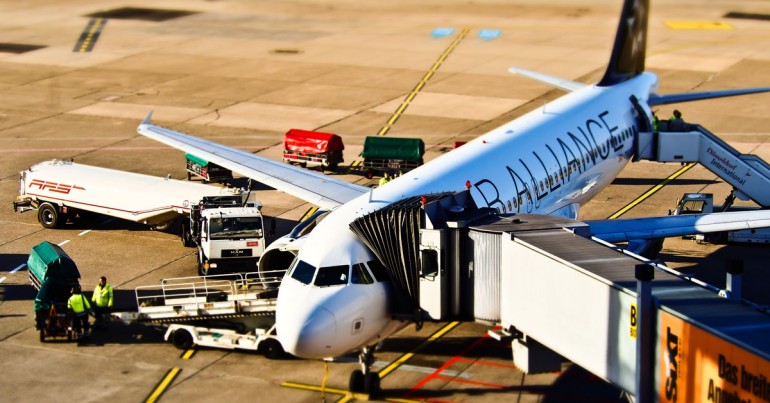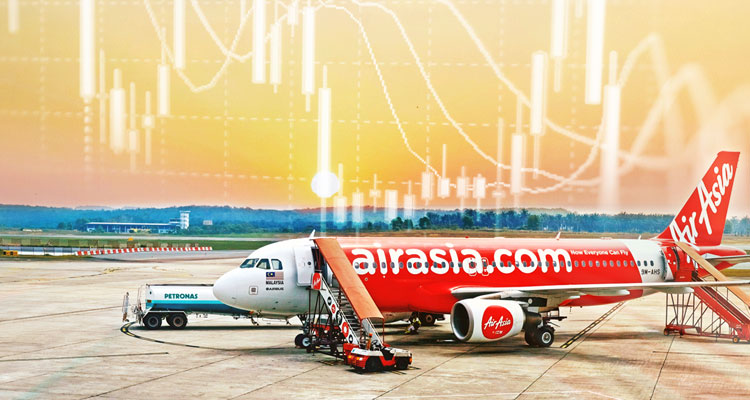
This Aviation festival by TerraPinn is Europe’s largest aviation technology exhibition. The event consistently brings together the best speakers in the airline and travel technology industry and is where powerful leaders do big deals. One of the other biggest draws of the event is the showcase of innovative technologies that can help save time, money and boost efficiencies in the industry as a whole.
At the show, we look forward to showcasing the aviation FX solutions that CurrencyTransfer.com brings via our award-winning currency risk management platform. Whilst we can’t control jet fuel prices or seasonal passenger numbers, we do give a currency toolbox to help CFO’s and CEO’s maximize the value of their foreign exchange exposures and keep their international transactions within budget.
So today, we are delighted to offer aviation companies attending the following tips when making cross-border payments.
Tip #1 Build a coherent currency strategy
Firstly, know your FX risks and review your exposures. Gain full visibility and control on your historical, existing and future cash flows in order to build a strategy for future currency fluctuations. This is the starting point in helping to protect your bottom line and should involve discussions with all stakeholders in the business. As a CEO or CFO, you then need to set goals and together with your currency specialist, execute on a plan.
Tip #2 Think where a natural hedge is possible
As a growing aviation business, your levels of foreign currency revenues can begin to match foreign currency overheads. It’s rare you will ever have perfectly matched currency costs and earnings – but it’s certainly an area where you can explore creating operational efficiencies.
Tip #3 Consider a reputable non-bank currency specialist
Above anything, make sure your currency provider is authorized and regulated by the FCA as a payment services institution. They must properly safeguard client funds with reputable, tier 1 banking institutions. Build rapport with your currency consultant. He or she should make real time currency information and breaking news available to you in a timely manner, where required, which helps deliver your agreed strategy. You can only stand to benefit from expert analysis on side highlighting any trends and alerting relevant price points.
Tip #4 Forward Contracts
Adopt a strategic approach to your foreign payments. When market rates are favourable, a forward contract can help you lock in the price to cover future requirements for up to twelve months. This will help your aviation company be certain of costs up front and avoid any nasty surprises. Many clients find it prudent to start with a 50% hedge over six months out, booking half of their forecasted requirements for these months, raising the coverage to 75% hedged for less than six months ahead.

Tip #5 Stop loss and limit orders
Setting stop loss and limit orders will allow your aviation business to protect against adverse rate fluctuations and also benefit from enhanced exchange rates when the market moves in your favour. Many clients find this a useful approach to top up their underlying forward hedging strategy.
Tip #6 Ensure your FX supplier timestamps deals
Never use a bank or an opaque FX broker that doesn’t want to show the time your currency deal was booked. In the supermarket, you know the exact price you pay for groceries and likewise, you should know your exact currency costs as an aviation company. By trading with a provider that clearly shows the spread between your dealing rate and the mid-rate at the point your trade was booked will leave nothing to chance. Transparency empowers your transactions.
Tip #7 Make payments in your sleep
You should have the ability to make payments any time of the day, even outside of core banking hours. Tech savvy online currency platforms will cover your trade at any time, so you can focus on the running of your business or getting a good nights sleep.
Tip #8 Optimize international payroll processing
Perhaps you’re an airline with thousands of foreign staff. Your people are your most valuable commodity. Guarantee international payroll punctuality by working with a payment partner who can facilitate local currency payroll payments. Dedicated online platforms will save time and money on admin and minimize payment errors to ensure your employees account details are correct. They can also keep your employees informed of the progress of their payment with dedicated recipient notifications.
Tip #9 You won’t always get it right
No-one has a crystal ball. The cons of a forward contract are that it’s rigid and the dealing rate when booked must be honored even if the market moves against the company post trade. But hindsight is a terrible mistress to keep and adopting the right strategy, discussed and agreed at inception, follows the agreed process and help de-risk the overall approach. Further, a layered hedge (increasing the amount covered as the deadline approaches) leaves the strategy open to some upside after the initial trade is booked.

Tip #10 Work with an Aviation specialist
Choose a non-bank foreign exchange specialist with a clear focus on the aviation industry and a genuine understanding of the sector landscape. Your dedicated currency consultant will understand the industry quirks and be able to help you develop a bespoke strategy to help avoid any unnecessary risks. This should let you focus on the day to day running of your business or finance department.
Meet The CurrencyTransfer.com Aviation FX Expert, @FxPlew
Paul Plewman, Co-Director & Head of Trading will be visiting the Aviation Festival and brings over 10 years industry experience. He has managed a portfolio of companies in the aviation industry and would be delighted to meet with anyone to talk dollar exchange rates and currency risk management.
Book a meeting here




